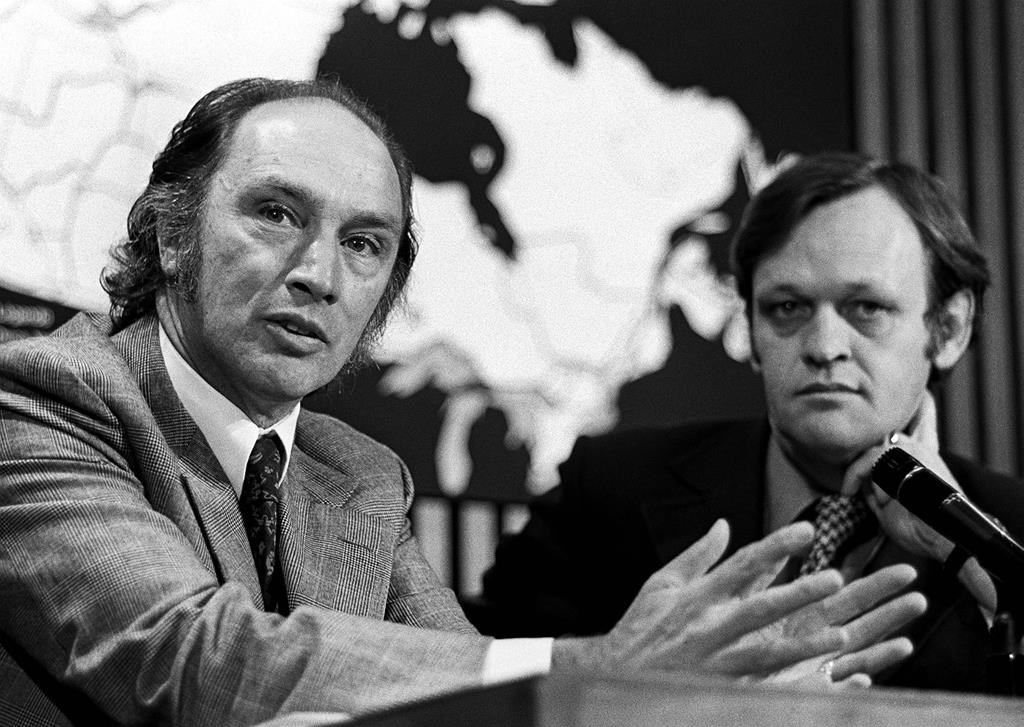New revelations about a secret anti-sovereigntist spy unit in the office of former prime minister Pierre Trudeau are a sign of how much remains unknown about the federal government’s response to the Quebec independence movement.

According to a recently published paper, the Prime Minister’s Office in the 1970s created the spy group to monitor Quebec sovereigntists, and asked the RCMP to provide it with intelligence — a request that was resisted by the RCMP’s defunct security service.
“We’re talking about the Prime Minister’s Office running a secret intelligence-collection operation and ? then wanting the RCMP to contribute collecting intelligence and providing it to this group,” said Dennis Molinaro, who teaches at Ontario Tech University and co-wrote the paper published in the journal Intelligence and National Security.
The paper, based on documents released under access to information laws, alleges that from at least spring 1971 to winter 1972, a secret body known by the code name FAN TAN operated outside Canada’s official intelligence system.
Published online on Aug. 28, the paper, called “The FAN TAN file: Quebec separatism and security service resistance to politicization 1971-72,” says the spy unit was also known as the “Vidal Group” — after its head of operations Claude Vidal. It alleges that the spy unit targeted legal elements of Quebec’s independence movement, including the Parti Québécois, and used the federal Liberal Party apparatus in Quebec to gather intelligence.
Many of the documents remain redacted, including one where Trudeau asks if the RCMP can engage in an activity, the nature of which was also redacted. All, or nearly all the documents were prepared by John Starnes, the head of the RCMP’s security service between 1970 and 1973, as part of his submission to the McDonald Commission, which investigated illegal actions by the security service.
Gregory Kealey, a professor emeritus in the department of history at the University of New Brunswick, said the release of the research paper is a testament to why Ottawa needs be more transparent about past actions of police and domestic intelligence services.

Get daily National news
“We’re talking about events that took place 53 years ago and we’re still playing with, at best, a damaged a deck of cards,” he said. Kealey said he wonders whether the redactions may cover up other narratives about Starnes, who headed the RCMP security service at a time when it conducted illegal actions and who never spoke about Vidal group in his memoir or in later interviews.
Former Parti Québécois leader Jean-François Lisée said it doesn’t make sense that unredacted copies of 50-year-old documents aren’t available.
“Current civil servants have made the determination that some parts of these half-a-century old texts were too dangerous to publish in order to preserve federal-provincial relations of today. That is obviously nonsensical, but it obviously shows that there are still things in there that would be shocking,” Lisée said in an interview Wednesday.
Other documents, including notes from federal cabinet meetings in 1975, 1976 and 1977 — around when the PQ was first elected in Quebec — still haven’t been released, he said.
The documents in the research paper “show how far Prime Minister Trudeau himself was willing to go in infringing on civil rights in order to fight separatism, illegal and legal,” Lisée said.
There are many other documents about the sovereignty movement that are still being kept from the public — including more than 4,500 documents entered into evidence during an inquiry into the 1995 Quebec independence referendum.

The 2006 investigation, overseen by retired judge Bernard Grenier, concluded that two federalist organizations funded by Ottawa failed to report spending of more than $500,000 during the referendum campaign, which was won by “No” side. Grenier ordered the thousands of documents that were presented during the hearings to be permanently sealed.
Last May, Quebec’s legislature unanimously adopted a motion calling on the province’s chief electoral officer to release all documents, but they remain sealed.
Philip H.J. Davies, who co-authored the paper on the secret spy unit, said the implications it raises are troubling.
“The idea that one would run a surveillance and ‘political action’ cell out of a party political office in a democracy was blood curdling …. It would be massively unconstitutional,” said Davies, who is also a professor of intelligence studies at Brunel University London.

Molinaro said the documents show that Starnes pushed back against the attempts to politicize his agency, threatening to resign and speak out about the operation rather than provide intelligence to the Vidal Group.
But, Molinaro said, there’s nothing in the commission’s report about the unit.
“One of the troubling questions we pose in the paper is: why wasn’t this released as part of the report that the McDonald Commission put out?” Molinaro said.
That commission, which confirmed that the RCMP had engaged in hundreds of illegal break-ins, burnt down a barn and stole the PQ membership list, would lead to the removal of domestic intelligence responsibilities from the RCMP and the creation of Canadian Security Intelligence Service, known as CSIS.
Pascal Bérubé, a PQ member of Quebec’s legislature, said the revelations in the research paper are part of a series of betrayals and coverups that have marked Quebec’s relations with Ottawa — including the theft of the PQ membership list by the RCMP and the illegal financing of the federalist campaign.
“No one can now deny that Pierre Elliott Trudeau’s office was behind the surveillance that the Parti Québécois has been the victim of since its founding,” he said.







Comments
Want to discuss? Please read our Commenting Policy first.